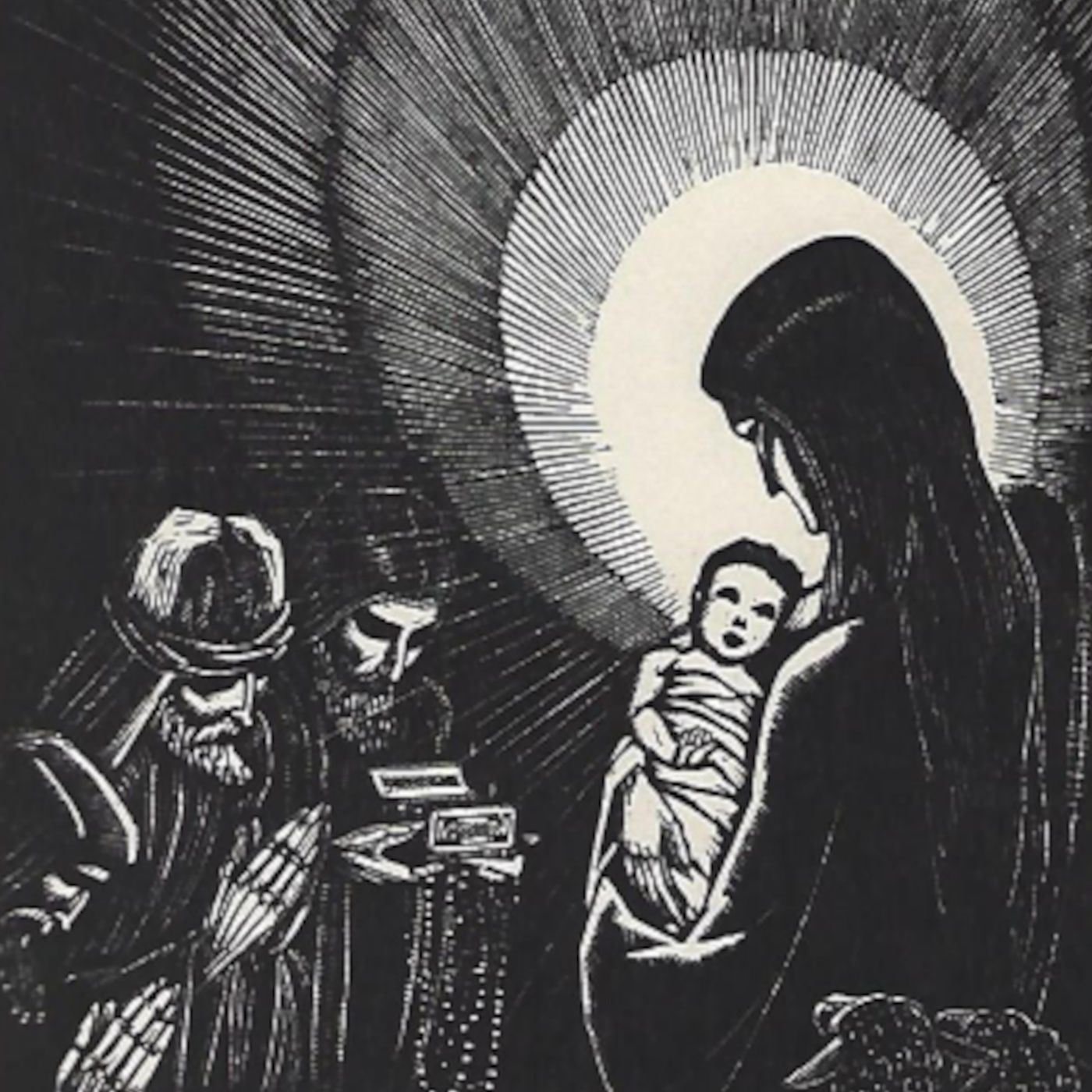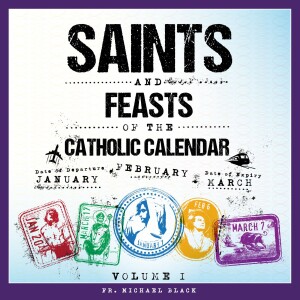
January 6: The Epiphany of the Lord
January 6 or the first Sunday after January 1 where this feast is not a Holy Day of Obligation
Solemnity; Liturgical Color: White/Gold
Catholicism did multiculturalism before anyone else
The Feast of the Epiphany has traditionally been considered more theologically important than almost any other Feast Day, including Christmas. The early Christians had only Scripture, not the wealth of tradition we have today, to guide them in marking the great events of the life of Christ. So Holy Week and Easter, the Baptism of the Lord, Pentecost, and the Epiphany jumped off the pages of Scripture as great events which merited celebration. These few dates became fixed points on the calendar and were later surrounded over the centuries with numerous other feasts and saints’ days.
Two lessons from the visit of the Magi are worth considering. The first is that the wise men’s gifts were given after Christmas. Many Catholic cultures preserve the ancient tradition of giving gifts on the Epiphany, not on Christmas itself. This tradition separates the birth of Christ from gift giving. When these two things—the birth of Christ and the giving of gifts—are collapsed into the same day, it causes some confusion of priorities, and the birth of Christ never wins. Waiting to exchange gifts until January 6 lets the Child God have the stage to Himself for a day. It makes people, especially children, wait—a rarity in the modern Western world. Postponing gift-giving until January 6 makes for a long, leisurely Christmas season and has the benefit of tradition and good theology as well.
Another great lesson from the Magi is more theological—that a true religion must be true for everyone, not just for some people. Truth is not geographical. It climbs over borders. Truth by its nature conquers untruth. The Magi are the first non-Jews, or Gentiles, to worship Christ. They tell us that the mission field of Christ is the whole world, not just the Holy Land. The Church is forever bound, then, to teach, preach, and sanctify the world over.
The Magi crack everything open. The true God and His Church must light a fire in Chinese souls, Arab souls, African souls, and South American souls. This may take until the end of time, but Christianity has time on its side. The Magi give personal testimony to the universality of the Church, one of its four marks. The Epiphany is the start of the multi-cultural, multi-lingual, multi-ethnic, and faith-united society that the Catholic Church envisions as the only source of true human unity. Catholicism started multiculturalism and diversity without sacrificing unity and truth.
Balthasar, Caspar, and Melchior, your minds were prepared to receive a greater truth. You give an example of holy curiosity, of pilgrimage by light to light. When you discovered your treasure, you laid down your gifts in homage. May our search also find. May our pilgrimage also end in truth.
view more
January 6 or the first Sunday after January 1 where this feast is not a Holy Day of Obligation
Solemnity; Liturgical Color: White/Gold
Catholicism did multiculturalism before anyone else
The Feast of the Epiphany has traditionally been considered more theologically important than almost any other Feast Day, including Christmas. The early Christians had only Scripture, not the wealth of tradition we have today, to guide them in marking the great events of the life of Christ. So Holy Week and Easter, the Baptism of the Lord, Pentecost, and the Epiphany jumped off the pages of Scripture as great events which merited celebration. These few dates became fixed points on the calendar and were later surrounded over the centuries with numerous other feasts and saints’ days.
Two lessons from the visit of the Magi are worth considering. The first is that the wise men’s gifts were given after Christmas. Many Catholic cultures preserve the ancient tradition of giving gifts on the Epiphany, not on Christmas itself. This tradition separates the birth of Christ from gift giving. When these two things—the birth of Christ and the giving of gifts—are collapsed into the same day, it causes some confusion of priorities, and the birth of Christ never wins. Waiting to exchange gifts until January 6 lets the Child God have the stage to Himself for a day. It makes people, especially children, wait—a rarity in the modern Western world. Postponing gift-giving until January 6 makes for a long, leisurely Christmas season and has the benefit of tradition and good theology as well.
Another great lesson from the Magi is more theological—that a true religion must be true for everyone, not just for some people. Truth is not geographical. It climbs over borders. Truth by its nature conquers untruth. The Magi are the first non-Jews, or Gentiles, to worship Christ. They tell us that the mission field of Christ is the whole world, not just the Holy Land. The Church is forever bound, then, to teach, preach, and sanctify the world over.
The Magi crack everything open. The true God and His Church must light a fire in Chinese souls, Arab souls, African souls, and South American souls. This may take until the end of time, but Christianity has time on its side. The Magi give personal testimony to the universality of the Church, one of its four marks. The Epiphany is the start of the multi-cultural, multi-lingual, multi-ethnic, and faith-united society that the Catholic Church envisions as the only source of true human unity. Catholicism started multiculturalism and diversity without sacrificing unity and truth.
Balthasar, Caspar, and Melchior, your minds were prepared to receive a greater truth. You give an example of holy curiosity, of pilgrimage by light to light. When you discovered your treasure, you laid down your gifts in homage. May our search also find. May our pilgrimage also end in truth.
More Episodes
July 5: Saint Anthony Zaccaria, Priest
 2024-07-05
2024-07-05
 2024-07-05
2024-07-05
July 4: Saint Elizabeth of Portugal
 2024-07-05
2024-07-05
 2024-07-05
2024-07-05
July 4: Independence Day—USA
 2024-07-03
2024-07-03
 2024-07-03
2024-07-03
July 3: Saint Thomas the Apostle
 2024-07-02
2024-07-02
 2024-07-02
2024-07-02
July 1: Saint Junipero Serra, Priest
 2024-07-01
2024-07-01
 2024-07-01
2024-07-01
June 30: First Martyrs of the Church of Rome
 2024-06-30
2024-06-30
 2024-06-30
2024-06-30
June 29: Saints Peter and Paul, Apostles
 2024-06-29
2024-06-29
 2024-06-29
2024-06-29
June 28: Saint Irenaeus, Bishop and Martyr
 2024-06-28
2024-06-28
 2024-06-28
2024-06-28
June 26: Saint Josemaria Escriva, Priest
 2024-06-25
2024-06-25
 2024-06-25
2024-06-25
June 24: Birth of Saint John the Baptist
 2024-06-23
2024-06-23
 2024-06-23
2024-06-23
June 22: Saint Paulinus of Nola, Bishop
 2024-06-21
2024-06-21
 2024-06-21
2024-06-21
June 21: Saint Aloysius Gonzaga, Religious
 2024-06-19
2024-06-19
 2024-06-19
2024-06-19
June 19: Saint Romuald, Abbot
 2024-06-13
2024-06-13
 2024-06-13
2024-06-13
June 13: Saint Anthony of Padua
 2024-06-12
2024-06-12
 2024-06-12
2024-06-12
June 11: St. Barnabas, Apostle
 2024-06-09
2024-06-09
 2024-06-09
2024-06-09
June 9: Saint Ephrem, Deacon and Doctor
 2024-06-08
2024-06-08
 2024-06-08
2024-06-08
Immaculate Heart of Mary
 2024-06-08
2024-06-08
 2024-06-08
2024-06-08
Sacred Heart of Jesus
 2024-06-06
2024-06-06
 2024-06-06
2024-06-06
012345678910111213141516171819
Create your
podcast in
minutes
- Full-featured podcast site
- Unlimited storage and bandwidth
- Comprehensive podcast stats
- Distribute to Apple Podcasts, Spotify, and more
- Make money with your podcast
It is Free
- Privacy Policy
- Cookie Policy
- Terms of Use
- Consent Preferences
- Copyright © 2015-2024 Podbean.com






